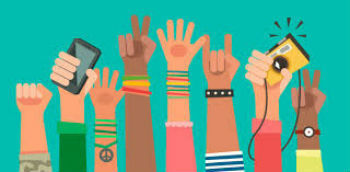prejudice is a opinion formulated without due reflection or critical examination. Generally devoid of any foundation, this opinion ends up influencing ways of thinking and acting, and may lead to acts of intolerance against people or social groups.
Among the types of prejudice that exist in our society, prejudices against social status, nationality or origin, sexual orientation, gender identity, ethnicity, race and way of speaking are common.
THE origin of prejudice it is in the values, ideologies, interests or beliefs of a particular social group. Prejudice stems from a poorly elaborated worldview, full of ideas and certainties that do not survive a minimum of reflection or critical examination.
Definition of Prejudice
prejudice is a pre-trial - literally, "pre-concept" -, that is, a judgment formulated in advance, without due knowledge of what is being judged. The prefix "pre" means "before".
The prejudiced attitude is usually based on stereotypes or generalizations misconceptions about a particular social group. This attitude is usually loaded with great antipathy towards people who belong to this group, often resulting in acts of discrimination and physical or verbal aggression.
prejudice is culturally transmitted. It is not risky to say, therefore, that individuals become prejudiced because they have been influenced by the social environment in which they are inserted, where prejudice is accepted or even encouraged.
Prejudice and Discrimination

Prejudice often results in acts of discrimination.. To discriminate against a person is to treat them unfairly or not accept them because of their color, origin, sexual orientation, creed, gender identity, etc.
It is common for a prejudiced opinion to be formulated from some stereotype, that is, a generalized and distorted image of a social group. Stereotyping works through a mechanism for imposing "labels", usually negative.
An example of a stereotype is one that associates Brazilians with trickery and laziness. A closer examination of the national reality, which is quite diverse, is enough to demonstrate the falsity of this characterization.
Read more about the concepts of discrimination and stereotype.
Prejudice in Brazil
According to a survey carried out by the Datafolha Institute, there is a growth in the number of people who claim to be victims of prejudice in Brazil.
In 2008, 23% of Brazilians said they had already suffered some kind of prejudice, whether in relation to race, place of residence, social class or sexual orientation. In 2019, that number jumped to 30%. According to the survey, class prejudice (classism) is the most common type.
Prejudice and violence usually go together. In this sense, the increase in the number of cases of violence against certain social groups.
They draw attention, for example, cases of religious intolerance. Between 2015 and 2017, there was one case of religious intolerance every 15 hours in Brazil. Adherents of Afro-Brazilian religions are by far the most affected (39% of cases).
It is also the target of violence motivated by prejudice to LGBTQI+ community: lesbians, gays, bisexuals, trans and transvestites, queers, intersexuals, asexuals and other forms of sexuality and gender existence. Data from the Unified Health System (SUS) reveal that, between 2015 and 2017, an LGBTQI+ person was attacked per hour in Brazil.
O racism in Brazil it also makes many victims. According to data from DataSUS, between 2011 and 2019 there was a 59% increase in violent deaths in Brazil against blacks and browns (IBGE terminology). By way of comparison, in this same period there was a 1.3% increase in this type of death among whites.
Provided for in the Federal Constitution of 1988, combating prejudice is part of the fundamental objectives of the Federative Republic of Brazil:
Promote the good of all, without prejudice of origin, race, sex, color, age and any other forms of discrimination.
Item IV of Article 3 of the Federal Constitution of 1988
Since 1989, some types of prejudice are considered a crime in Brazil. This is what Law No. 7,716, popularly known as the "law of racism" says:
Art. 1. In accordance with this Law, crimes resulting from discrimination or prejudice based on race, color, ethnicity, religion or national origin will be punished.
The penalty for those who commit acts of prejudice is imprisonment for two to five years. In 2019, by decision of the Supreme Court, cases of homophobia and transphobia began to be equated with the so-called crimes of racism, and could be included in the same law. Thereby, discrimination based on sexual orientation and gender identity is now considered a crime in Brazil.
An education focused on citizenship is one of the main ways to fight intolerance. the calls Contemporary Cross-cutting Themes (TCTs), which should be incorporated into the pedagogical plans of Brazilian schools, guarantee the discussion in the classroom of themes such as ethics, cultural plurality and sexual orientation.
The objective of studying these themes in Basic Education is to build a society more committed to values such as equality, ethics and justice. Therefore, a society with less prejudice.
The transversal theme "multiculturalism", for example, foresees the valorization of Brazilian cultural diversity, with the objective of promoting a more tolerant and democratic society. From this perspective, cultural differences are seen as a wealth and not a social problem.
Read too: cultural relativism and Xenophobia.
Another important measure in the field of education was the inclusion of teaching African and Afro-Brazilian History and Culture in Elementary and High School curricula (Law 10639/2003). With this, it is expected that the new generations increasingly value the history of black people, fighting stereotypes and prejudices.
Another affirmative action is the university quotas, which allow blacks and Indians access to university education through places specially designed for these people. With this, it is intended to reduce the profound educational and social inequalities that exist in Brazil.
Read too: Racial quotas.
Types of Prejudice
There are several types of prejudice, among which the following stand out:
- Social prejudice
- Racial prejudice
- Linguistic Prejudice
- religious prejudice
- Preconception Sexual
- cultural prejudice
Read more about the Types of Prejudice.


